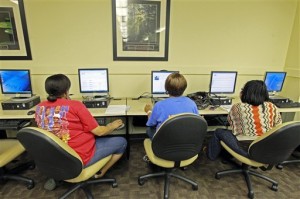WASHINGTON—An adjustment of a mere second in the official global clock sent dozens of websites crashing in an incident reminiscent of the Y2K bug over a decade ago.
The “leap second” was added to the Coordinated Universal Time to adjust clocks to the earth’s rotation the night of June 30, delaying for one second the transition to July 1.
The extra second was too much for some software to handle.
Reddit, a social news network, posted a Twitter message, saying “We are having some Java/Cassandra issues related to the leap second.”
A later message by Reddit attempted to make fun of the issue: “You ever wish you had an extra second or two? This is not one of those times.”
Mozilla, the organization behind the Firefox browser, also had problems.
“Java is choking on leap second,” said Mozilla engineer Eric Ziegenhorn, who noted that some services using the Java software platform were malfunctioning.
The outages came roughly at the same time as a major US storm which knocked out power to an Amazon data storage site which serves as cloud host for many websites, including Netflix.
Some sites such as the social network Foursquare said it was affected by the Amazon outage.
LinkedIn, the professional social network, said its service was down on Saturday, without elaborating.
“Some of you may have experienced difficulty accessing the site. Our team is working on it now. Stay tuned for more,” LinkedIn said on Twitter.
The Australian airline Qantas reported delays which some media said were due to a software problem with the Amadeus reservation system, impacted by the leap second.
Google went in prepared for the latest of 25 leap seconds added since 1972, having identified problems in 2008 and developing “one of our coolest workarounds.”
“The solution we came up with came to be known as the ‘leap smear,'” Google engineer Christopher Pascoe said in posting last year.
We modified our internal NTP servers to gradually add a couple of milliseconds to every update… Google engineers developing code don’t have to worry about leap seconds.”
The problems evoked the so-called bug from the year 2000, when computer systems designed for years expressed in two digits such as 99 for 1999 had to be adapted to four digits.
